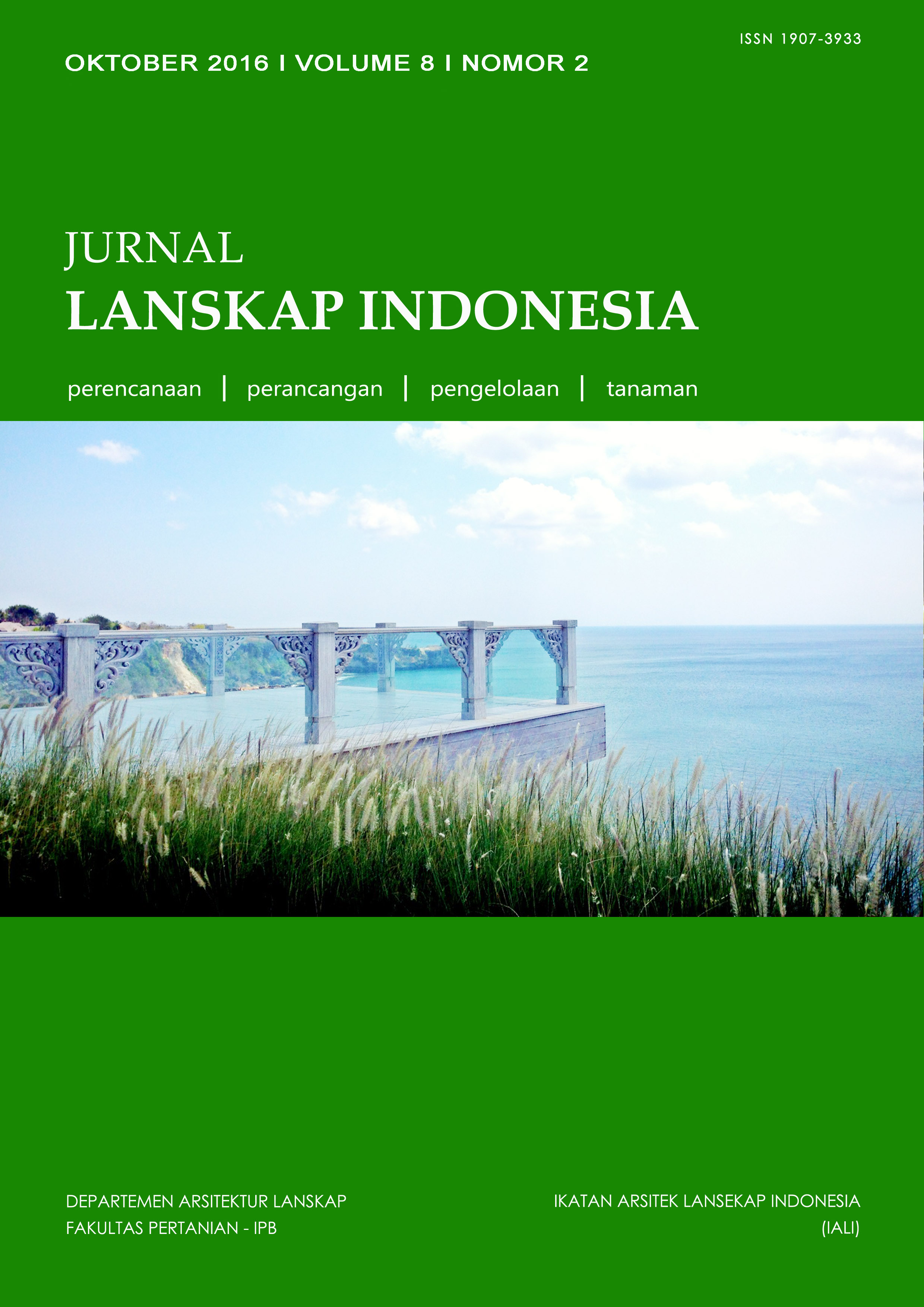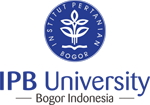KAJIAN RUANG TERBUKA UNTUK PELESTARIAN KHAZANAH PERMAINAN TRADISIONAL DI KOTA BOGOR, JAWA BARAT
Abstract
The decreasing of open space inflicts some negative impacts in urban areas. One of them is the loss of children playground. Open space with its various elements is needed to stimulate positive responses in children growth and development, also it is important as a space for playing traditional games which has a lot of values of cognitive, affective, and psychomotor. This study was conducted in Bogor City which included six districts. There were four objectives of this study, namely to review the existence of open space in Bogor, to identify the various traditional games in Bogor, to measure children’s knowledge and perception against traditional games, and to construct recommendation for traditional game preservation. The method of this study consisted of data collection, processing, analysis, and recommendation construction. Questionnaire method in Guttman scale and paired comparison model were used in primary data collection. Data processing used MS.excel and SPSS 16.0 software to define the connection between open space and children play perception. The result shows that the existence of open space presently has neither attracted children interest in playing outside nor playing traditional games yet. Landscape design for children playground that comprise of a field and some elements which can take children’s interest to play outside and enjoy with traditional games, will be required, in addition to preserve cultural treasures with other socialization and educational programs.Downloads
This journal permits and encourages authors to post items submitted to the journal on personal websites or institutional repositories both prior to and after publication, while providing bibliographic details that credit, if applicable, its publication in this journal. However, after the article is submitted and published in this journal, it is fully copyrighted by the Jurnal Lanskap Indonesia or JLI. If excerpts from other copyrighted works are included, the author must obtain written permission from the copyright owner and give credit to the source in the article. Then, the writer or reader is allowed to copy, share, and redistribute articles/material in any form. But it must still include the appropriate source and credit because the article in this journal is licensed by Creative Commons Attribution 4.0 International License (CC BY 4.0).
I. Proposed Policy for Journals That Offer Open Access
Authors who publish with this journal agree to the following terms:
- Authors retain copyright and grant the journal right of first publication with the work simultaneously licensed under a Creative Commons Attribution License that allows others to share the work with an acknowledgement of the work's authorship and initial publication in this journal.
- Authors are able to enter into separate, additional contractual arrangements for the non-exclusive distribution of the journal's published version of the work (e.g., post it to an institutional repository or publish it in a book), with an acknowledgement of its initial publication in this journal.
- Authors are permitted and encouraged to post their work online (e.g., in institutional repositories or on their website) prior to and during the submission process, as it can lead to productive exchanges, as well as earlier and greater citation of published work (See The Effect of Open Access).
II. Proposed Policy for Journals That Offer Delayed Open Access
Authors who publish with this journal agree to the following terms:
- Authors retain copyright and grant the journal right of first publication, with the work after publication simultaneously licensed under a Creative Commons Attribution License that allows others to share the work with an acknowledgement of the work's authorship and initial publication in this journal.
- Authors are able to enter into separate, additional contractual arrangements for the non-exclusive distribution of the journal's published version of the work (e.g., post it to an institutional repository or publish it in a book), with an acknowledgement of its initial publication in this journal.
- Authors are permitted and encouraged to post their work online (e.g., in institutional repositories or on their website) prior to and during the submission process, as it can lead to productive exchanges, as well as earlier and greater citation of published work (See The Effect of Open Access).



























